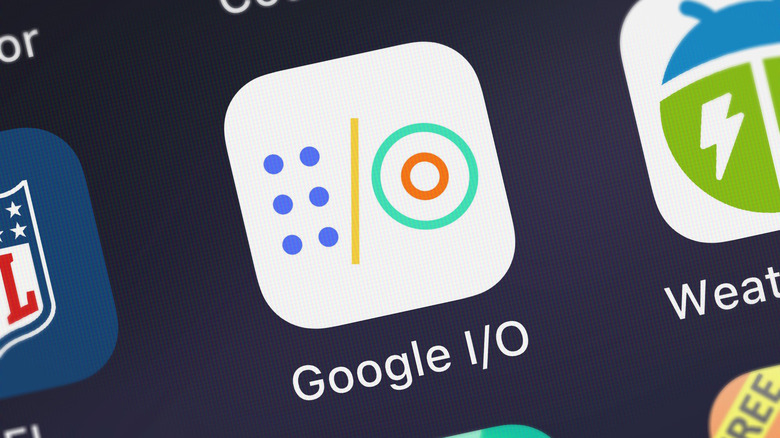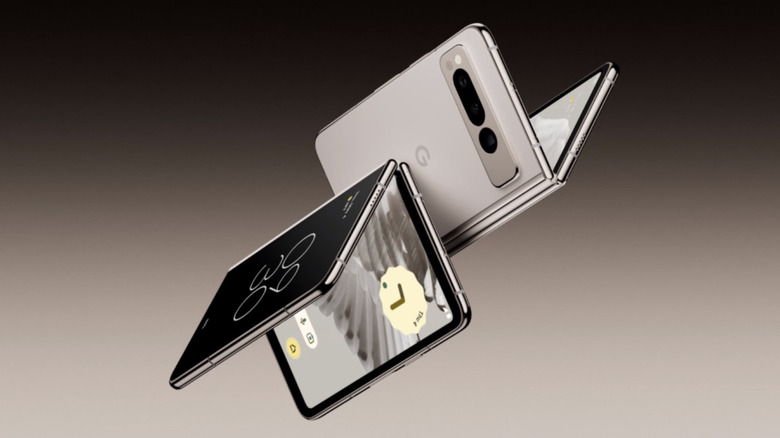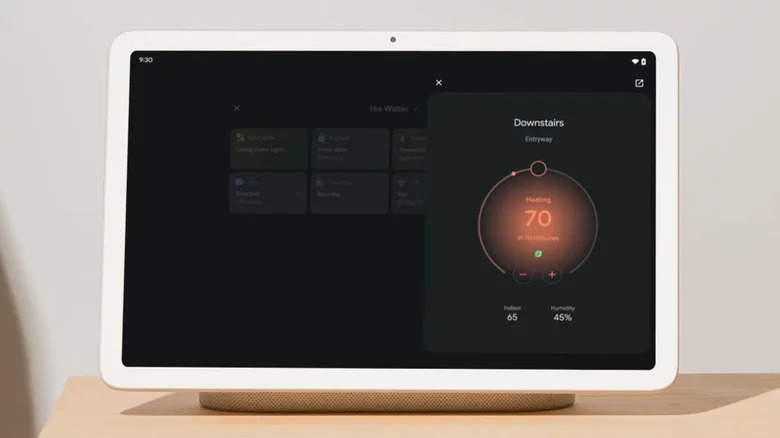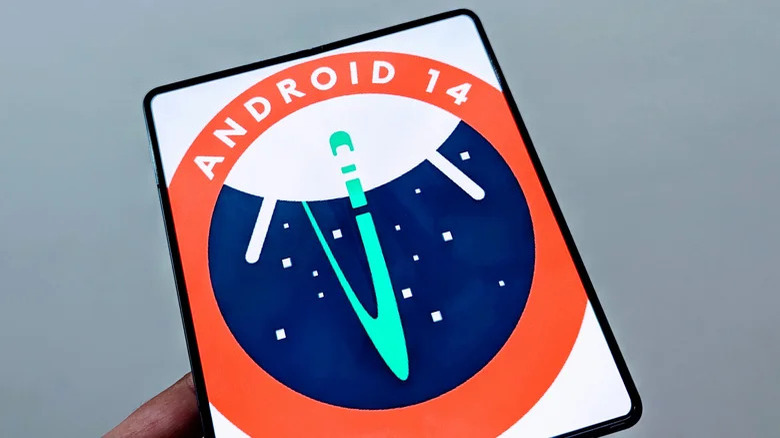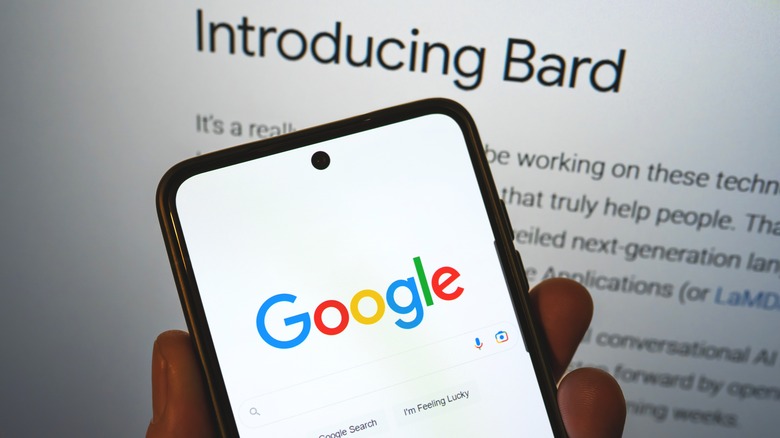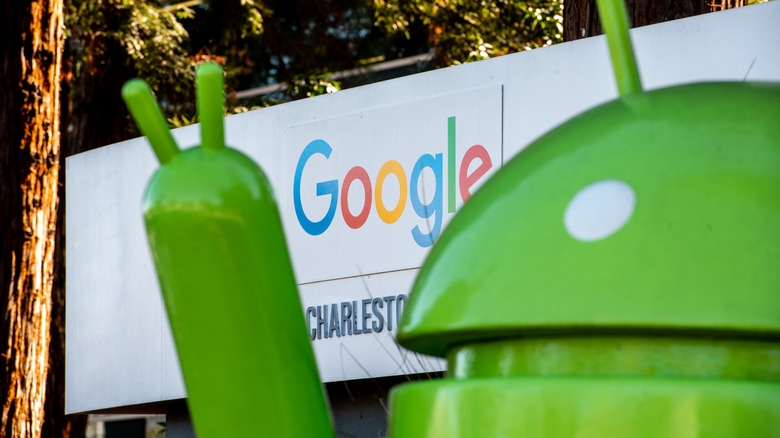Where To Watch Google I/O 2023 (And What To Expect)
Google I/O 2023 is on the horizon, with developers converging in San Francisco beginning May 10. Even if you aren't a member of the coding discipline, there's a lot to look forward to at this year's show.
Most will be interested in the keynote speech, which commences at 1 p.m. ET (10 a.m. PT) on May 10. YouTube is the best destination for those tuning into the keynote live, but the replay should be available soon after the live show airs. Google CEO Sundar Pichai will lead the stage with exciting announcements, reveals, and demos.
Android fans can also count on hearing about the latest here at SlashGear. We'll be in attendance and dishing out all the juicy details live, so keep it locked here on Wednesday for regular updates and coverage from the show. Pixel devices are expected to show up big this year as always, but there may also be new updates with Google's Bard AI, as well as new features in Android 14, and any other surprises from the show.
Pixel Fold is official
Google already spoiled some of the fun last week when it teased the Pixel Fold for the first time. The company dropped official renders showing off the device's sleek design, which alone is enough to convince that it knows what it's doing with design. Prospective buyers will have to wait until Wednesday for all the official technical details — not to mention retail availability.
That being said, rumors and leaks have helped fill in some of the Pixel Fold blanks, starting with the star component: the 7.6-inch foldable AMOLED display, effectively giving you a pocketable tablet. The 5.8-inch front display carries the load for one-handed needs. Google's Tensor G2 has proven itself as a formidable smartphone chip in the Pixel 7 series, and it's reportedly reprising that role for the Fold.
A 50-megapixel main camera is expected for the Fold — which should be similar to the Pixel 7's sensor, which has best-in-class fidelity. There's also a selfie camera that won't be hidden behind the display when unfolded, and though this could be an engineering limitation, it may be an intentional design decision by Google to maximize the sensor's quality potential. Under-display equivalents have suffered on similar devices like Samsung's Galaxy Z Fold 4.
As for cost, we recommend setting aside at least $2,000. The Pixel Fold could be as much as $1,800 before tax.
Pixel Tablet should arrive, too
If it's a dedicated Android tablet you're after, Google is planning one of those, too. The Pixel Tablet's existence was officially confirmed much sooner than the Pixel Fold's, and the wait has felt equally unbearable. The tablet will be available in various calming colors baked into a nanoceramic coating, and Google has confirmed the Tensor G2's presence inside this tablet. We also know it'll be compatible with a magnetic speaker dock, effectively transforming the Pixel Tablet into a powerful home hub.
The dock charges your Pixel Tablet, while enabling room-filling tunes and hands-free Google Assistance functionality. However, we don't know if you'll be able to use the dock as a standalone speaker. We'd hope so, considering early rumors have exposed a $130 price tag. A leaked Amazon listing showed an initial May 10 preorder date for the dock, all but confirming the Pixel Tablet's presence at this year's Google I/O.
These new Pixel devices are expected to be early champions for showing off Android 14 at its purest. Google will strengthen support for its adaptive user interface to support foldable smartphones natively — a must given the Pixel Fold's arrival.
Android 14's newest features confirmed
With the first Android 14 developer preview arriving in February, and further beta releases expected through the summer, there likely won't be any major surprises with Android 14's release. It'll be more difficult figuring out what Google eventually decides not to include from all the features it's previewing.
Many other Android 14 features will enhance the user experience on all Android devices, of which the Pixel family will be first in line. Android is getting an improved back button, more granular localization features, and regaining separate adjustability of ringtone and notification volumes.
Google is hooking up Android with system-level changes that should contribute to improved battery life. New security tools offer more granularity in setting how apps can access your data. For instance, you can select specific photos to share within certain apps instead of giving them carte blanch permissions. A credential manager also centralizes and hides logins behind password-less, biometric authentication.
Developers and users alike will appreciate anticipated changes to how Android's Share menu works as well, making the user experience more consistent across devices and apps, including the ability to add custom app actions within the resulting window.
Health Connect is another big change on the way. This platform offers developers and hardware makers a framework for storing and sharing sensitive health data across services. Improved utility and convenience are exciting byproducts of its development, but chiefly, everyone should welcome hardware-level standardization and encryption of their health information.
How will Google approach the future of web?
Like the recent assimilation of artificial intelligence into every corner of tech and industry, Google will almost certainly use I/O this year as an opportunity to re-establish its dominance as a web search giant. Microsoft poses the biggest threat to Google in the "search wars," so to speak. In partnership with OpenAI and its GPT-4 architecture (the muscle behind ChatGPT), it jumped out to an early lead with Bing Chat, and positioned it as the early standard to beat.
Google fired back emphatically with Bard: in addition to supercharged search, the company has wasted little time figuring out how AI can fortify its web services like Gmail, Google Drive, and Google Docs (as well as Sheets and Slides). Google Bard also recently picked up some intermediate coding capabilities. We're sure Google's engineers will be on the scene with mouthwatering demos for developers who dream of offloading mundane tasks like debugging and prototyping, among other advanced uses with Google's iteration on AI.
Any other Google I/O surprises?
Historically, Google is hopelessly and laughably bad at keeping secrets, but the company has successfully preserved surprises on occasion. How about other new devices? The Pixel 8 and Pixel 8 Pro are due this year, though it's a little too early for that announcement, especially considering Google has two mobile products demanding larger-than-life spotlights. More information about the Pixel 7a's launch would be a nice consolation.
We might get some new Pixel Watch updates, even if only through Android 14's advent. The odds of getting new Home hubs might be out of the question with the Pixel Tablet's versatile functionality. How about new Chromebooks? Nest devices? Pixel Buds? There are more than enough blind guesses to fire on a Google I/O bingo card, which sounds like a fun game to consider organizing with your buddies in Slack and Discord. We'll be back Wednesday with all the details as the show goes on.
